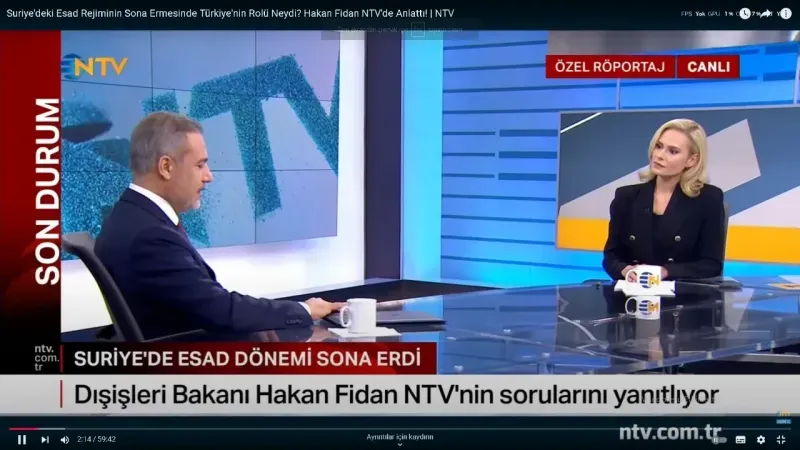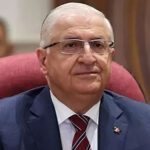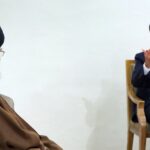Turkey announced on Friday that it had urged Russia and Iran to refrain from military intervention in support of Bashar al-Assad’s forces during an Islamist-led rebel offensive on Damascus, which ultimately led to Assad’s ouster, Agence France-Presse reported.
“The most critical step was engaging with the Russians and Iranians to ensure they did not intervene militarily. We held discussions with them, and they understood,” Turkish Foreign Minister Hakan Fidan told the private NTV television network.
Fidan noted that while Moscow and Tehran, both staunch allies of Assad since the Syrian civil war began in 2011, could have bolstered his regime, the resulting conflict would have been far more violent, even if the rebels still managed to prevail.
“If Assad had received support, the opposition might have won due to their determination, but it would have been a prolonged and bloodier battle,” Fidan explained. He emphasized that Turkey’s objective was to engage in “focused negotiations with two key players to minimize loss of life.”
The Islamist-led HTS rebel alliance launched its offensive on November 27. Initially, Russia and Iran offered military support to Assad to fend off the rebels. However, the rapid collapse of Assad’s forces took both nations by surprise. Compounding their hesitation was Russia’s preoccupation with the war in Ukraine and Iran’s struggles, including the weakening of its proxies such as Hezbollah in the face of Israeli strikes.
Recognizing Assad’s untenable position, Moscow and Tehran ultimately decided he was no longer a viable investment. “They understood that there was no point anymore,” Fidan said.
Turkey, while not directly involved in the offensive, expressed support for the rebels. Analysts suggest Ankara tacitly approved the Hayat Tahrir al-Sham (HTS) operation. However, HTS’s background as a group rooted in al-Qaeda’s former Syrian branch has drawn widespread concern, particularly among Western nations that classify it as a terrorist organization.
Fidan acknowledged such concerns, stating they were “perfectly normal” and would “need to be addressed.” He emphasized Turkey’s goal of a Syria free from terrorism and threats to neighboring countries. “No one knows HTS as well as we do. We are actively working to ensure Syria does not pose a danger to the region,” he said.
Since 2016, Turkey has maintained influence in northwestern Syria, including over Idlib, the last opposition stronghold. This influence allowed Turkey to maintain open communication channels with HTS, through which it relayed international concerns.
“We convey our friends’ concerns to them and encourage action. They’ve made significant statements, and people are seeing that they’re moving in the right direction,” Fidan added.
In addressing the new administration in Damascus, Fidan conveyed Turkey’s expectations. “This is what Turkey, which has stood by you for years, demands. And this is what the world expects,” he said.



